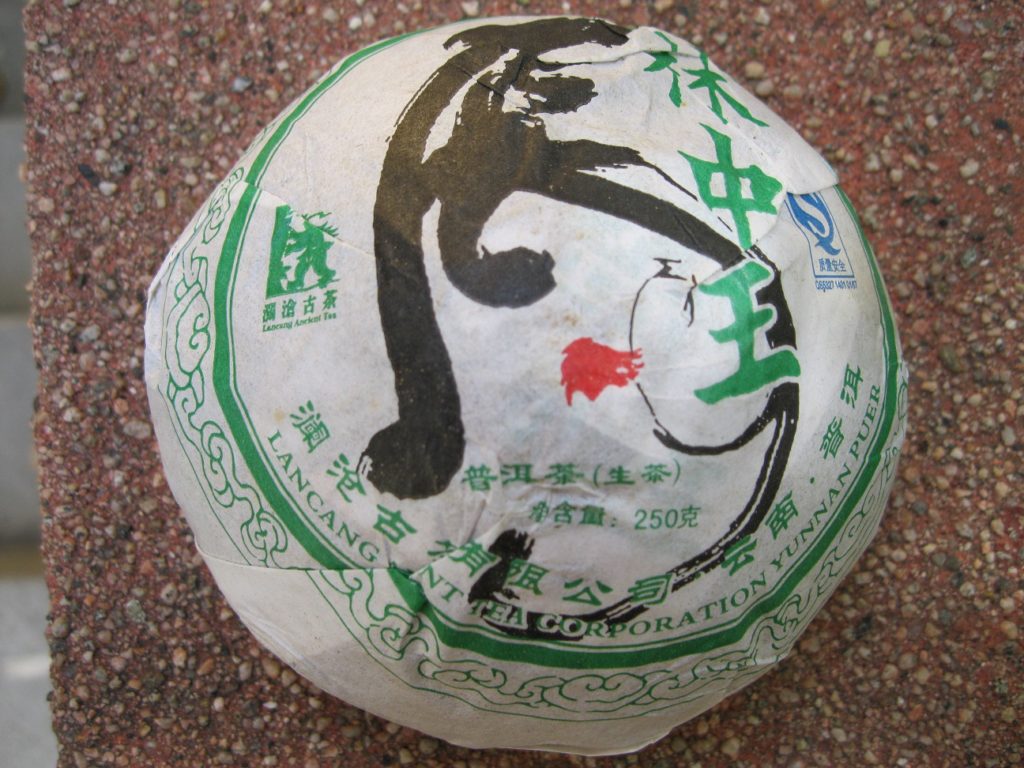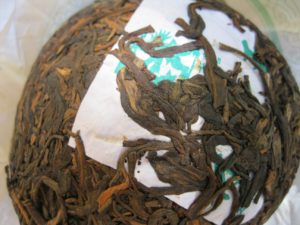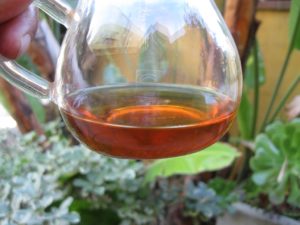Endangered Species Puerh

Endangered Species Puerh isn’t what you think. This is a nostalgia piece regarding a tuo, a lunar tuo to be precise, that has long vanished. It took about four years from my acquisition for it to express root beer notes. At the outset, in ’14, it tasted like pineapple and Granny Smith.
I ran across this post from ’12 and thought I’d share. It’s in Chinese and for your convenience, I through it through “translator.” I didn’t tidy the rendering. It’s good for the pics at the very least.
Tiger is the king of the forest, tea is also the king of the forest
The raw materials are selected for the large-leaf ancient trees and the old sun-dried green tea in the Lancang River Basin, carefully blended by the tea craftsman, and picked by hand. The new and old match, high temperature autoclaved. The soup is yellow and bright. After tasting, the mouth will stay fragrant. Strong taste. pure. With a long aftertaste, it is an excellent product worth collecting and drinking.
I kept it at home for half a year, and I started the soup today. I feel that the raw materials do have the ingredients of ancient trees. I don’t know how much, but the price is still very close to the people and very attractive. In terms of taste and color, after nearly 3 years of transformation, the color of the soup turns yellowish and brighter and slightly red, and there is no longer the green and astringent feeling of new tea. The taste is strong, the bitterness comes and the bitterness is very fast, the sweetness is strong, pure, and the aftertaste is long-lasting, and it is very comfortable in the mouth for a long time. In 3-5 years, Lin Zhongwang must be a good tea.
One of the advantages to tuo is that they’ll get up to speed much faster than a cake. This particular tuo which was stored conservatively but raced to root beer faster than any amidst the treasure. This was when I realized that the aggressive taste of Lancang TF was worth enduring. Still I have an ’09 Ox from them that I’m still waiting on.
Maybe ’10 was one of those “good years.” I say this because when I got the Mengku Tiger in about 16, I couldn’t believe how positively mature it tasted. . . an looked.
The conditions were magnificent. It didn’t taste as if it had been pushed too hard in storage. The root beer was there along with typically floral and burly notes characteristic Mengku/Daxue Shan.
Alas. They come and they go.


